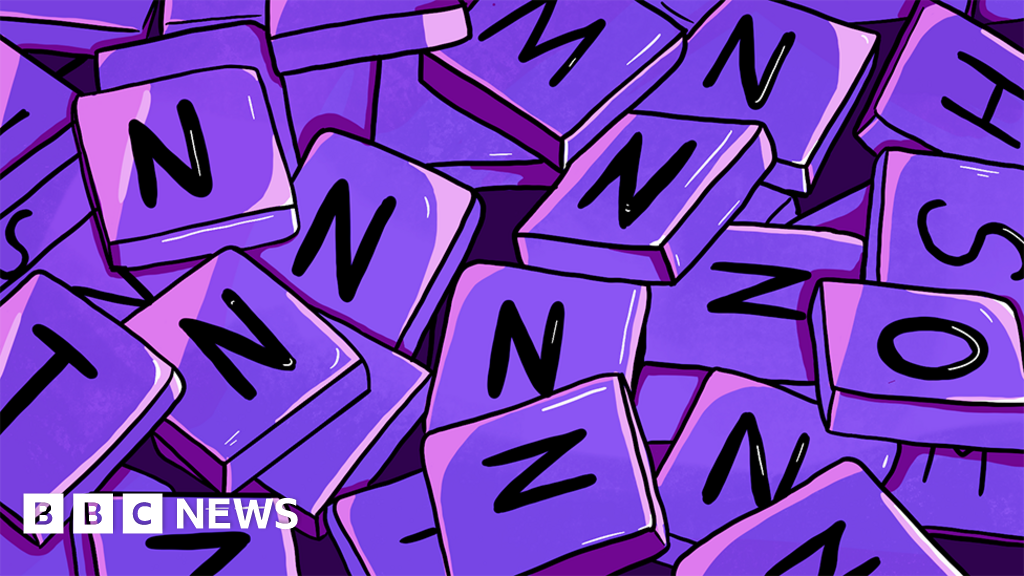The "T slur" has become a topic of significant discussion in recent years, particularly within the context of gender and identity. As societal norms evolve, understanding the impact of language on marginalized communities becomes increasingly important. This article aims to provide a comprehensive overview of what the T slur is, its origins, implications, and how it affects the transgender community.
Language plays a crucial role in shaping our perceptions of the world and the people around us. Words can empower or harm, depending on their intent and usage. The T slur is one such term that has been used to demean and dehumanize transgender individuals. Understanding its origins and implications is essential for fostering inclusivity and respect in our communities.
This article will delve into the history of the T slur, its impact on mental health, and the importance of using language responsibly. By the end of this piece, readers will have a clearer understanding of why it's crucial to avoid such derogatory terms and how we can contribute to creating a more compassionate society.
Read also:Exploring The Achievements And Insights Of Mckinley Richardson Ed
Table of Contents
- What is the T Slur?
- Historical Background
- Why Is It Offensive?
- Impact on the Transgender Community
- Mental Health Implications
- Alternatives and Respectful Language
- Societal Changes and Awareness
- Legal and Political Ramifications
- Resources for Education
- Conclusion and Taking Action
What is the T Slur?
The T slur refers to derogatory language specifically targeting transgender individuals. It often involves the use of the letter "T" in a mocking or demeaning manner. This slur is not just a word but a reflection of deeper societal issues surrounding gender identity and acceptance.
Understanding the T slur requires an awareness of the historical context in which it was born. By examining its roots, we can better comprehend its harmful effects on those it targets.
Origins of the Slur
The origins of the T slur can be traced back to certain subcultures where derogatory language was normalized. Over time, this language has seeped into broader societal discourse, perpetuating harmful stereotypes about transgender individuals.
Research from organizations like GLAAD highlights the importance of addressing such slurs to promote inclusivity and respect. By understanding the origins of the T slur, we can work towards eradicating its use in everyday language.
Historical Background
The history of the T slur is intertwined with the broader struggle for transgender rights. Throughout history, transgender individuals have faced discrimination and marginalization, often exacerbated by the use of derogatory language.
Key moments in history, such as the Stonewall Riots, have played a pivotal role in raising awareness about the challenges faced by the transgender community. Understanding this historical context is crucial for appreciating the significance of language in shaping societal attitudes.
Read also:Unveiling The Mysteries Of The January 5 Star Sign A Complete Guide
Key Events in Transgender History
- Stonewall Riots (1969): A turning point in the LGBTQ+ rights movement, highlighting the struggles of transgender individuals.
- Marsha P. Johnson and Sylvia Rivera: Pioneering activists who fought for transgender rights and visibility.
- Modern Movements: Ongoing efforts to combat discrimination and promote acceptance in various societies worldwide.
Why Is It Offensive?
The T slur is offensive because it dehumanizes transgender individuals and perpetuates harmful stereotypes. It reduces complex identities to mere punchlines, disregarding the lived experiences and struggles of those it targets.
Offensive language not only affects individuals on a personal level but also contributes to a culture of intolerance and discrimination. By using respectful language, we can foster a more inclusive and compassionate society.
Psychological Effects of Offensive Language
Research conducted by organizations such as the American Psychological Association (APA) highlights the psychological effects of derogatory language on marginalized communities. These effects include increased anxiety, depression, and feelings of isolation.
By understanding the psychological impact of the T slur, we can better appreciate the importance of using language responsibly and respectfully.
Impact on the Transgender Community
The impact of the T slur on the transgender community is profound and far-reaching. It affects individuals' self-esteem, mental health, and overall well-being. The use of such language reinforces societal stigma and makes it more challenging for transgender individuals to live authentically.
Community support and education play a crucial role in combating the negative effects of the T slur. By fostering understanding and empathy, we can create environments where all individuals feel safe and respected.
Community Initiatives and Support
- Transgender support groups offering resources and counseling services.
- Advocacy organizations working to promote awareness and acceptance.
- Education programs aimed at reducing stigma and fostering inclusivity.
Mental Health Implications
The mental health implications of the T slur are significant. Transgender individuals already face higher rates of mental health challenges due to societal stigma and discrimination. The use of derogatory language exacerbates these challenges, making it even more difficult for individuals to seek help and support.
According to the National Institute of Mental Health (NIMH), addressing the mental health needs of transgender individuals requires a multifaceted approach. This includes promoting awareness, reducing stigma, and providing accessible mental health services.
Strategies for Mental Health Support
- Creating safe spaces for transgender individuals to share their experiences.
- Training mental health professionals to better understand and address the unique needs of transgender clients.
- Implementing policies that protect the rights and well-being of transgender individuals in various settings.
Alternatives and Respectful Language
Using respectful language is essential for promoting inclusivity and respect. Instead of resorting to derogatory terms like the T slur, it's important to use language that acknowledges and affirms the identities of transgender individuals.
Respectful language not only benefits those it addresses but also contributes to a more harmonious and understanding society. By choosing our words carefully, we can make a positive impact on the lives of others.
Examples of Respectful Language
- Using preferred pronouns and names to address transgender individuals.
- Avoiding assumptions about gender identity and expression.
- Encouraging open and respectful dialogue about gender and identity.
Societal Changes and Awareness
Societal changes are underway to address the use of derogatory language like the T slur. Increased awareness and education have led to a greater understanding of the importance of inclusive language. However, there is still much work to be done to ensure that all individuals are treated with respect and dignity.
Efforts to combat the use of the T slur include campaigns, workshops, and educational programs aimed at promoting awareness and understanding. By participating in these initiatives, we can contribute to creating a more inclusive society.
Successful Campaigns and Initiatives
- GLAAD's "Tip Guide for Allyship" providing resources for allies to support the transgender community.
- HRC's "Transgender Visibility Guide" offering insights into promoting visibility and acceptance.
- Local and international events celebrating transgender rights and achievements.
Legal and Political Ramifications
The use of the T slur has legal and political ramifications, particularly in countries where discrimination based on gender identity is prohibited. Laws and policies have been enacted to protect the rights of transgender individuals and promote equality.
Understanding the legal and political landscape surrounding the T slur is essential for advocating for change and ensuring that all individuals are treated fairly and justly.
Key Legislation and Policies
- Equality Act: A law aimed at prohibiting discrimination based on gender identity and sexual orientation.
- International Human Rights Standards: Guidelines promoting the rights and well-being of transgender individuals worldwide.
- Local Ordinances: Policies implemented at the municipal level to protect transgender rights and promote inclusivity.
Resources for Education
Education is a powerful tool for combating the use of the T slur and promoting understanding. Numerous resources are available for individuals and organizations looking to learn more about transgender issues and inclusive language.
By accessing these resources, we can gain a deeper understanding of the challenges faced by the transgender community and how we can contribute to creating a more inclusive world.
Recommended Resources
- GLAAD's Media Reference Guide: A comprehensive resource for journalists and media professionals.
- HRC's Transgender Resources: Information and tools for allies and advocates.
- Local Support Groups: Organizations offering education and support for transgender individuals and their allies.
Conclusion and Taking Action
In conclusion, understanding the T slur and its implications is crucial for fostering inclusivity and respect in our communities. By using respectful language and promoting awareness, we can contribute to creating a world where all individuals are treated with dignity and equality.
We invite readers to take action by sharing this article, engaging in respectful dialogue, and supporting initiatives aimed at promoting transgender rights and acceptance. Together, we can make a positive impact on the lives of others and create a more compassionate society.
Let us commit to using language that affirms and uplifts, rather than harms and dehumanizes. By doing so, we can help eradicate the use of the T slur and promote a culture of respect and understanding.

